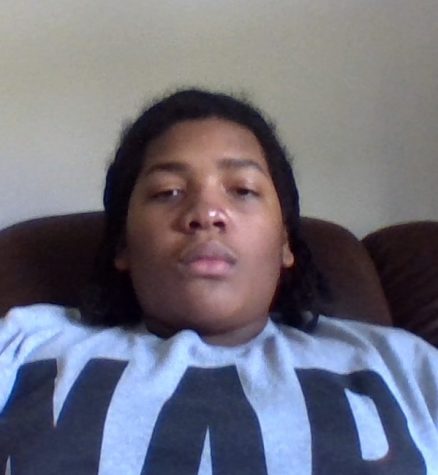
Lekeion is a sophomore in his first year of journalism. An interesting fact about him is that he is very critical. He also enjoys gaming.
October 5, 2020
While the events that unfold everyday may change thousands or even millions of lives, we don’t have to let them define us. Nowhere is this more true than in incidents of police brutality over the past few months. The question is, how should we respond?
Mahatma Gandhi, a great Indian philosopher, once said, “The future depends on what you do today.” Many people feel that 2020 has not been a great year, to say the least. With the loss of beloved ones to Covid and police brutality, things may not seem to be getting any better.
But we don’t have to accept things as they are. Our actions, now and in the future, define what we are as a whole, as well as pave the road for future generations to come. In order to solve the problems of shootings, injustices and bigotry, we must address the problems. However, we can’t address the problems if we fight and hate each other for stating our different opinions.
American rapper Eminem said, “The truth is you don’t know what’s going to happen tomorrow. Life is a crazy ride, and nothing is guaranteed.” We can’t predict tomorrow nor see tomorrow. In other words, what we do today affects tomorrow. Ice Cube, an African American rapper, once said, “The worst thing you can do about a situation is nothing.” So while many people have banded together to protest, sometimes that is not enough for change.
The fact is that police brutality is a problem that is rocking many communities, such as in the case of George Floyd, yet another casualty of unnecessary force. On May 25, Floyd, an African American male, begged for air as he repeatedly said, “I can’t breathe” while under arrest for allegedly using a counterfeit bill. Public bystanders stood on the sidelines telling the officers Floyd couldn’t breathe because one of the officers placed his knee into Floyd’s neck and applied pressure.
As Floyd begged for air, crowds gathered and started to take videos as he cried for help. As the minutes went by, he became unconscious and emergency personnel were called and loaded him in the back of the ambulance and rushed him to the hospital where he passed away due to cardiac arrest. It’s wrong knowing that the only between him and help was three officers with guns.
Breonna Taylor is yet another victim of this brutality. On March 13 police suspected her flat was being used by a gang based at a different location 10 miles away. She was shot eight times in her own home after officers breached it under a search warrant for narcotics. Reports vary on whether the officers knocked on the door., but Taylor’s family filed a lawsuit accusing the officers of battery, wrongful death, excessive force and gross negligence.
According to USA Today, “Why police targeted Taylor’s apartment for a ‘no knock’ search warrant after midnight has been a key question in the case since her shooting became a national rallying cry for racial justice in May.”
The names of African Americans who were past casualties of police brutality gets longer each year, including Eric Garner, Michael Brown, Tamir Rice, Walter Scott, Alton Sterling, Philando Castile and Stepon Clark. Little was done for most of their cases. In 2015, African American rapper Kendrick Lamar released one of his hit songs Alright and performed it live on the BET Awards. During the performance he stood on top of a burning police car. His song acted as a voice for the protest for Scott’s death at the hands of a police officer. This resulted in outrage and the saying “no justice, no peace.”
One of the verses in Kendrick’s Alright goes like this:
“Wouldn’t you know
We been hurt, been down before.
When our pride was low
Lookin’ at the world like, “Where do we go?”
And we hate po-po
Wanna kill us dead in the street for sure
I’m at the preacher’s door
My knees gettin’ weak and my gun might blow
But we gon’ be alright
With this verse people started chanting we gon be alright!
We were taught growing up that the police are here to uphold the law and help us understand it. Yet when we as African Americans are treated terribly and abused by the ones who swore to protect and serve, it changes people’s feelings about them. If we can’t trust members of law enforcement, who can we trust? Who can we trust with making sure people are safe? There comes a time when enough is enough. When will our cries be heard?

Lekeion is a sophomore in his first year of journalism. An interesting fact about him is that he is very critical. He also enjoys gaming.